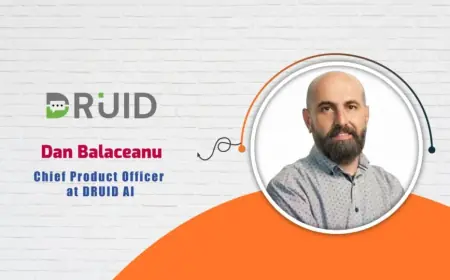Is Finasteride Right for You? A Deep Dive into Hair Loss Treatment
Finasteride is especially recommended for people with male pattern baldness. Learn more about Finasteride for Hair Loss in Dubai and avoid baldness for good.

Hair loss is a common concern that affects millions of people worldwide. Whether due to genetics, hormonal changes, or environmental factors, losing hair can significantly impact a person’s self-esteem and overall well-being. Among the various treatment options available, finasteride has emerged as a popular medication for addressing male pattern baldness and, to some extent, female hair loss. In this article, we’ll explore how finasteride works, its benefits, potential side effects, and whether it might be the right treatment for you.
What Is Finasteride?
Finasteride For Hair Loss Dubai is an oral medication that was initially developed to treat benign prostatic hyperplasia (BPH), a condition where the prostate gland enlarges and causes urinary problems. It works by inhibiting the enzyme 5-alpha-reductase, which converts testosterone into dihydrotestosterone (DHT). High levels of DHT are associated with hair loss in individuals genetically predisposed to male pattern baldness. By lowering DHT levels, finasteride helps slow down hair loss and, in some cases, promotes hair regrowth.
How Effective Is Finasteride for Hair Loss?
Studies have shown that finasteride is highly effective for most men experiencing male pattern baldness. Research indicates that approximately 80-90% of men who take finasteride see a significant reduction in hair loss, with around 60% reporting hair regrowth. The benefits typically become apparent after 3-6 months of use and continue to improve for up to a year.
For women, finasteride is sometimes prescribed off-label, particularly for those dealing with androgenetic alopecia, a type of hair loss caused by hormonal imbalances. However, results are less predictable, and it is not approved by the FDA for female use. Women who are pregnant or planning to become pregnant should avoid finasteride due to the risk of birth defects.
Pros of Using Finasteride:
-
Proven Results: Clinical trials and real-world data support finasteride’s effectiveness in reducing hair loss and promoting regrowth.
-
Ease of Use: Finasteride is taken as a daily oral tablet, making it a convenient treatment option.
-
Long-Term Benefits: Continuous use can maintain hair growth over years, preventing further hair loss and improving overall hair density.
-
Improved Confidence: Many individuals report feeling more confident and satisfied with their appearance after seeing positive results.
Potential Side Effects of Finasteride:
As with any medication, finasteride comes with potential side effects. While the majority of users tolerate it well, some may experience:
-
Sexual Dysfunction: A small percentage of men report issues such as decreased libido, erectile dysfunction, or reduced semen volume. These side effects may persist even after discontinuation, although most men do not experience long-term issues.
-
Psychological Effects: Some users have reported mood changes, depression, or anxiety. The extent of these effects varies and is still a subject of ongoing research.
-
Other Physical Effects: Side effects like breast tenderness, rash, or dizziness are less common but can occur.
Who Should Consider Finasteride?
Finasteride is typically recommended for men under 50 who are experiencing early stages of male pattern baldness. It is most effective when used proactively, so starting treatment sooner rather than later is often advised. If you’re noticing thinning hair or a receding hairline, consulting with a dermatologist or healthcare professional can help determine if finasteride is right for you.
Women who are experiencing hair loss due to hormonal changes may also consider finasteride, but this should only be done under strict medical supervision and after discussing potential risks.
Who Should Avoid Finasteride?
Certain individuals should avoid using finasteride due to potential risks or contraindications:
-
Pregnant Women: Finasteride is known to cause birth defects, so pregnant women should never handle crushed or broken tablets.
-
Individuals with Liver Disease: Finasteride is metabolized by the liver, so those with liver impairments should avoid it.
-
Those Prone to Side Effects: If you’ve experienced negative side effects from similar medications in the past, it may be best to explore alternative treatments.
Alternatives to Finasteride:
If finasteride isn’t the right choice for you, there are other treatments to consider:
-
Minoxidil: This topical solution is an over-the-counter option that promotes hair growth by improving blood circulation to the scalp. It can be used in combination with finasteride or as a standalone treatment.
-
Hair Transplant Surgery: For those seeking a permanent solution, hair transplants involve transferring hair follicles from one part of the scalp to another.
-
Lifestyle Changes: A balanced diet, reducing stress, and using gentle hair products can support overall scalp health.
Making the Decision: Is Finasteride Right for You?
Choosing the right treatment for hair loss depends on individual needs, preferences, and medical history. Finasteride is highly effective for many men but comes with potential side effects that should be weighed carefully. Consulting a healthcare professional is crucial for determining the best course of action tailored to your circumstances.
Conclusion:
Ultimately, Finasteride For Hair Loss can offer significant benefits for hair loss treatment, but like any medication, it’s not without its risks. With informed decision-making and professional guidance, you can find the solution that’s best for you.
What's Your Reaction?
 Like
0
Like
0
 Dislike
0
Dislike
0
 Love
0
Love
0
 Funny
0
Funny
0
 Angry
0
Angry
0
 Sad
0
Sad
0
 Wow
0
Wow
0

















































